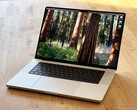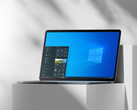Despite Apple’s growing visibility in offices, Windows continues to lead the enterprise landscape. A recent analysis from IDC shows Apple accounts for just 5% of global commercial computer shipments. Lenovo, HP, and Dell collectively command over 75%. In the US, Macs reached up to 11% of laptop deployments, but that still keeps them in the minority.
When it comes to computer usage for companies, they are largely divided into three groups. There are the PC-first companies with limited Mac exceptions, the free choice for employees, and the PC-only policy companies. According to IT consulting firm BlueRadius Cyber, the decision often depends on function and budget. Macs are typically reserved for roles like design, software development, or testing within Apple’s ecosystem, where macOS tools offer clear advantages.
Some firms even adopt performance-based criteria before approving Mac purchases. Luca Dal Zotto of Rent a Mac described to The Register a 30-day trial system in which employees track measurable improvements before approval. These include measures such as video render times or debugging speed. This approach reportedly cut non-essential Mac requests by 67%.
Still, industry watchers note that Apple’s value proposition is shifting. Canalys analyst Kieren Jessop highlighted that the MacBook Air’s 16GB RAM and $1,199 price point narrow the gap between Apple and premium PC alternatives like the Dell XPS 13. As younger IT decision-makers favor flexibility, Apple’s enterprise footprint may continue to rise, though Windows remains the corporate standard for now.












